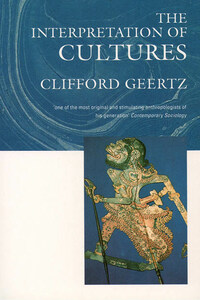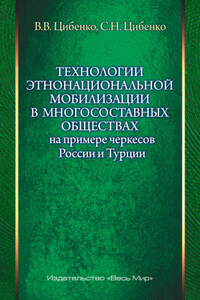William Collins
An imprint of HarperCollinsPublishers Ltd.
1 London Bridge Street
London SE1 9GF
Published by Fontana Press 1993
First published by Basic Books, Inc., New York 1973
Copyright © Basic Books, Inc., 1973
Clifford Geertz asserts the moral right to be identified as the author of this work
All rights reserved under International and Pan-American Copyright Conventions. By payment of the required fees, you have been granted the nonexclusive, nontransferable right to access and read the text of this ebook on-screen. No part of this text may be reproduced, transmitted, downloaded, decompiled, reverse-engineered, or stored in or introduced into any information storage and retrieval system, in any form or by any means, whether electronic or mechanical, now known or hereafter invented, without the express written permission of HarperCollins ebooks
HarperCollinsPublishers has made every reasonable effort to ensure that any picture content and written content in this ebook has been included or removed in accordance with the contractual and technological constraints in operation at the time of publication
Source ISBN: 9780006862604
Ebook Edition © AUGUST 2016 ISBN: 9780008219475
Version: 2016-08-31
When an anthropologist, urged on by an attentive publisher, begins to gather together certain of his essays for a kind of retrospective exhibition of what he has been doing, or trying to do, over the fifteen-year period since his release from graduate school, he is faced by two tearing decisions: what to include, and how reverently to treat what is included. All of us who write social science journal pieces have a nonbook in us, and more and more of us are publishing them; all of us imagine that anything our past self has done our present self could do better, and stand ready to perpetrate improvements upon our own work we would never stand for from any editor. To try to find the figure in the carpet of oneâs writings can be as chilling as trying to find it in oneâs life; to weave, post facto, a figure inââthis is what I meant to sayââis an intense temptation.
I have faced up to the first of these decisions by including in this collection only those of my essays which bear, directly and explicitly, on the concept of culture. The majority of the essays are, in fact, empirical studies rather than theoretical disquisitions, for I grow uncomfortable when I get too far away from the immediacies of social life. But all of them are basically concerned with pushing forward, instant case by instant case, a particular, some would say peculiar, view of what culture is, what role it plays in social life, and how it ought properly to be studied. Though this redefinition of culture has perhaps been my most persistent interest as an anthropologist, I have also worked with some extensiveness in the areas of economic development, social organization, comparative history, and cultural ecologyâconcerns which are, save tangentially, not reflected here. Thus, what is ostensibly a set of essays emerges, so I hope, somewhat as a treatiseâa treatise in cultural theory as developed through a series of concrete analyses. Not just an âand then I wrote . . .â review of a somewhat vagrant professional career, this book has an argument to make.
The second decision has been a bit trickier to deal with. In general, I hold to a stare decisis view of published pieces, if only because if they need very much revision they probably ought not to be reprinted at all, but should be replaced with a wholly new article getting the damn thing right. Further, correcting oneâs misjudgments by writing changed views back into earlier works seems to me not wholly cricket, and it obscures the development of ideas that one is supposedly trying to demonstrate in collecting the essays in the first place.
However, for all that, there does seem justification for a certain amount of retroactive editing in cases where the substance of the argument is not seriously affected but to leave things exactly as originally written is either to purvey out-of-date information or undercut a still valid discussion by tying it too closely to a particular set of now faded events.









